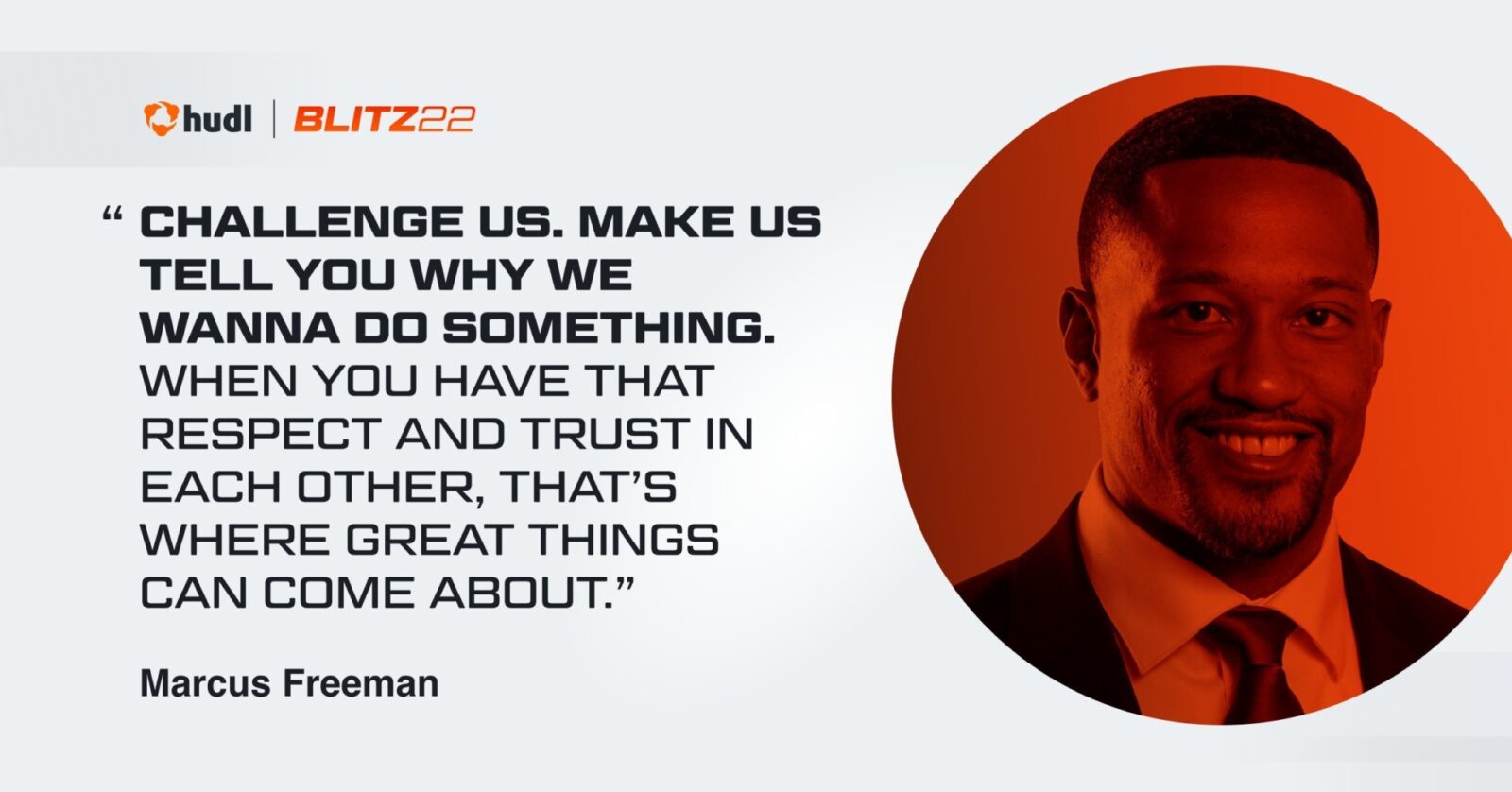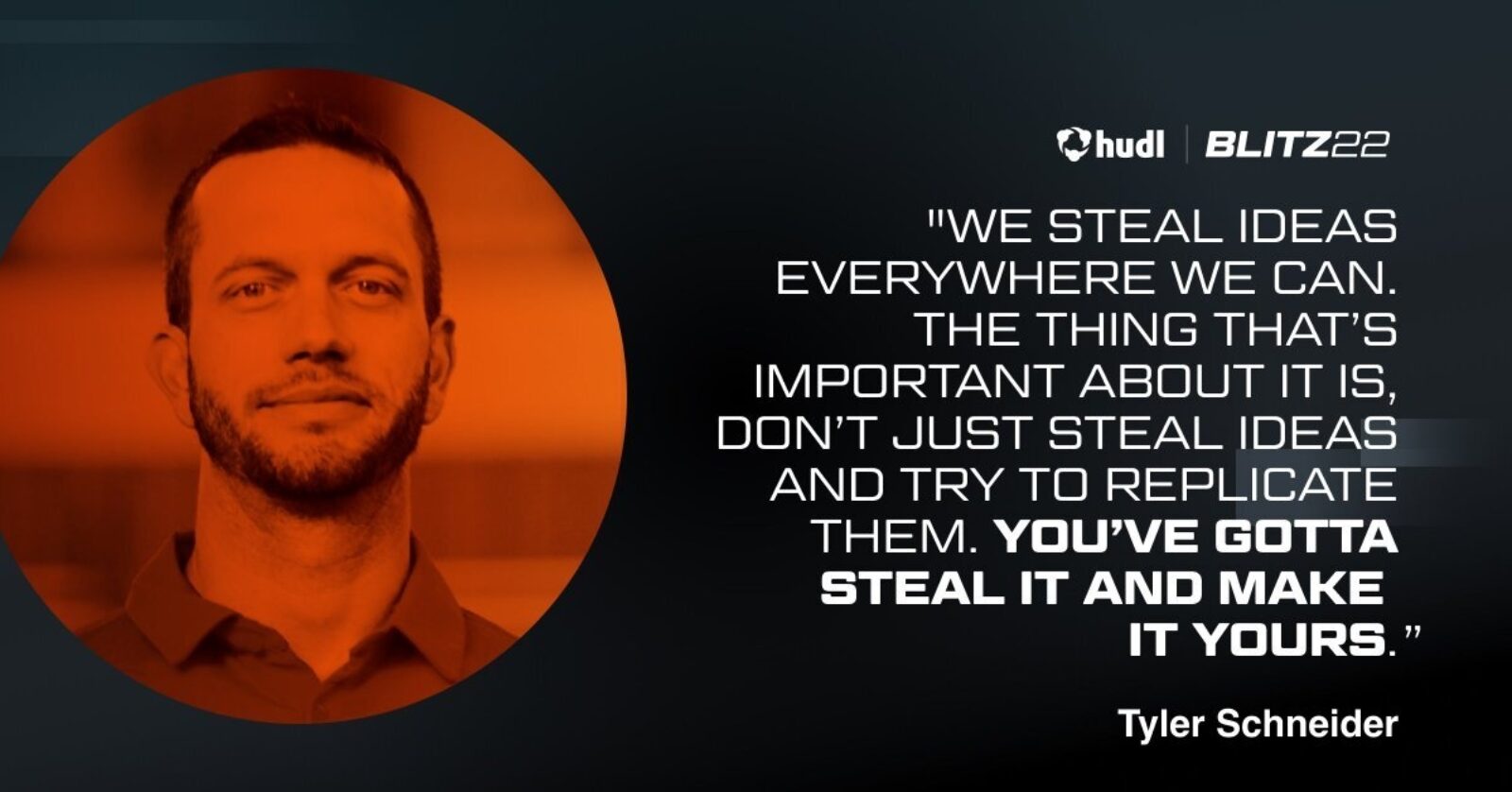Blitz ‘22 Recap: Top Coaches Push Back on Convention

Hudl’s second annual virtual football summit brought together coveted minds from all levels of the game. And reminded us to keep pushing the boundaries.
The greatest coach’s challenge: Yourself
The days of “because I said so” are a thing of the past for coaches at all levels. Players today want to understand the “why” behind the decisions their coaches make. And in turn, these same coaches can learn a lot just from listening.
That was a point echoed by numerous speakers throughout the event, including Notre Dame head coach Marcus Freeman, Minnesota head coach P.J. Fleck, Baylor head coach Dave Aranda, and LSU special teams coordinator Brian Polian.
Polian, whose presentation specifically centered on coaching Gen Z, reminded us we’re in the “edutainment” business, and it’s on coaches to keep the players engaged rather than just lecture.
Freeman, in his Q&A with NFL analyst Charles Davis, said he never goes into a coach’s meeting thinking he has all the ideas. He’d rather his staff, and players, to bounce ideas off one another.

The AFC champion Cincinnati Bengals have their own well-known acronym for their culture—P.H.A.T.—which head coach Zac Taylor went into detail about. Others from the NFL ranks, such as Jacksonville Jaguars head coach Doug Pederson and Indianapolis Colts assistant offensive line coach Kevin Mawae, preached the importance of fundamentals at the grassroots level.

In football, old ideas often become relevant again in a new context. Such is the case with Coastal Carolina University, whose unique triple-option scheme makes much of its offensive staff a popular request at coaching clinics. Offensive line coach Bill Durkin gave the Blitz audience a deep dive on two Chanticleer staples, speed option and freeze option.
Few in the college ranks are as well-traveled as North Texas defensive coordinator Phil Bennett, who brought 40 years of college coaching experience into his presentation on defensive game-planning. But it was an icon on the other side of the ball—and a Wishbone coach, at that—who shaped his defensive philosophy.
Data doesn’t have to be intimidating
In his presentation “Toppling Goliath: Creating a Plan to Win,” Rich Worsell expanded on a question he was asked after his presentation at the American Football Coaches Association convention in January: How do you prepare to beat a team that hasn’t lost yet?
Worsell, the former University of Akron Director of Research and Analytics, used his analysis of the Georgia Bulldogs and Los Angeles Rams to lay out a data-driven foundation for how to attack opponents that seem overwhelming on paper.

The entry point to applying tendency data doesn’t have to be such a heavy lift. In their panel discussion on using the new Hudl Beta experience, three high school coaches—Onalaska (Wisc.) head coach Tom Yashinsky, Brooks County (Ga.) defensive coordinator Brandon Evans, and St. Pius X (Mo.) defensive assistant James Reyes—stressed how it’s made their game-planning process so much more fluid.
“Once the data was in, it was so easy to look at what that data actually told you,” said Evans, who credits Hudl Beta with helping him win a Georgia Class A state championship in 2021. “It felt like once I’m done tagging data, I can actually use it.”
One of the most interesting data-driven sessions was from Army head coach Jeff Monken, who presented on his “Seven Commandments” of winning football. Using data from the 2021 Division 1 FBS football season, he explained why the metrics tell him to focus on seven areas in particular for a winning outcome:
































